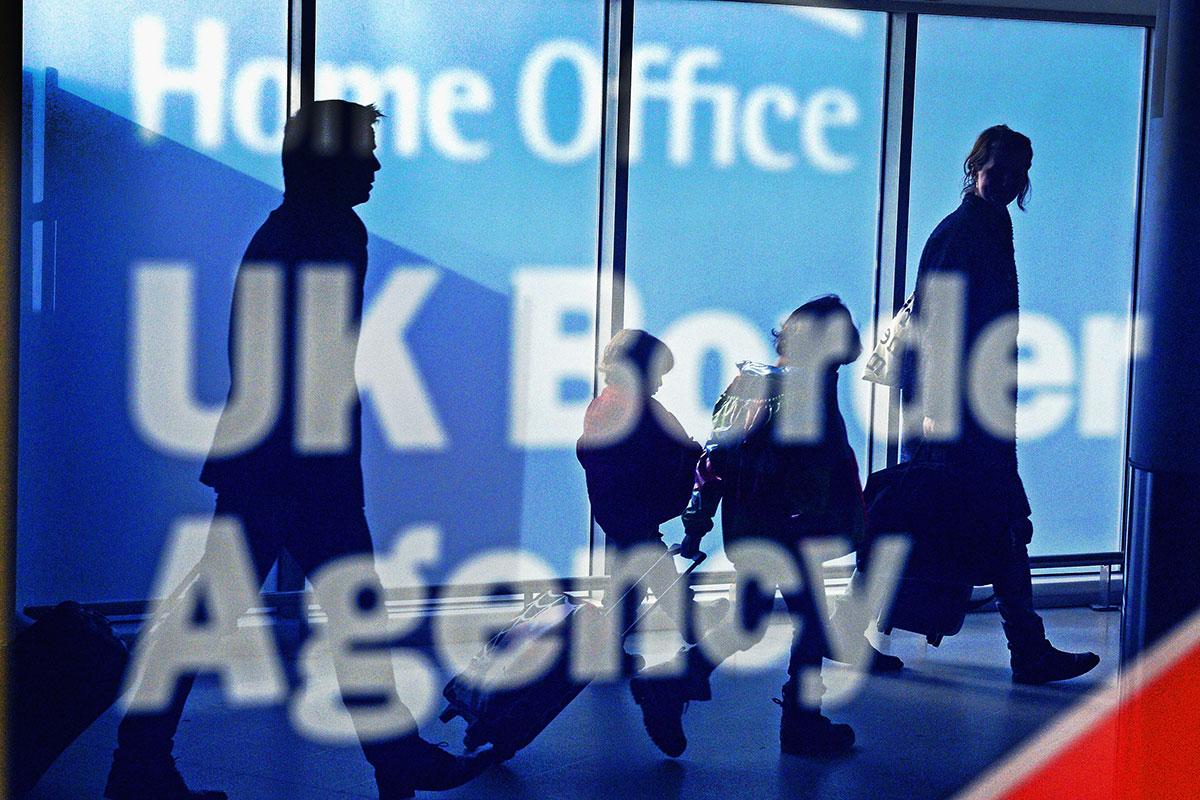Majority of Britons want to protect immigration levels that supports the economy, poll finds
Drop the Target: 79% of Conservative voters want a 'sensible policy' as the UK approaches Brexit

Theresa May will be urged to embrace a new consensus among voters on immigration after evidence that people want to keep EU migration that is good for the economy after Brexit.
British Future, an independent think tank, will argue in a report due to be published this week that there is common ground among the public to restore “control” of migration without closing the door to EU citizens and to refugees.
The report will include new polling by ICM which found that seven in ten people (71 per cent) agree with the statement that: “Immigration brings pressures as well as gains and our decision to leave the EU gives us a chance to change the system. What we need now is a sensible policy to manage immigration so we control who comes here but still keep the immigration that's good for our economy and society, and maintains our tradition of offering sanctuary to refugees who need our protection.” This is supported by 79 per cent of people who voted Conservative in June and 73 per cent of those who voted Leave in last year’s referendum.
According to ICM, there is backing for a compromise policy to balance the economy's needs and immigration control after Brexit. This is supported by 47 per cent, twice as many as who want to prioritise the economy over immigration (23 per cent) or vice-versa (22 per cent). A majority of Tory voters (52 per cent) endorse the compromise, although they are more likely to prioritise immigration over the economy (27 per cent) than Labour supporters (17 per cent).
Almost two in three people, including 71 per cent of Tory voters and 75 per cent of over-65s, believe the Government should drop its target to reduce net migration below 100,000 a year in favour of targets for different types of migration such as skilled and low-skilled workers. Only 7 per cent of the public disagree.
Just 12 per cent of people, including 14 per cent of Tory supporters, think the Government’s target will be met in the next five years, while 66 per cent do not.
British Future, whose report will analyse the June election, will argue that the public have a much more balanced view of immigration than many Tories and Leave campaigners believe.
Jill Rutter, the think tank’s director of strategy and report’s co-author, said: “Politicians can have a rather dumbed-down idea of public opinion on immigration. Most people are balancers – they want action to deal with the impacts of immigration but they also see the benefits for the economy and the NHS. The problem with the net migration target is that it follows that dumbed-down logic and sees all immigration as one big number.”
British Future backed the Drop the Target campaign against the Government's “tens of thousands” goal by The Independent and Open Britain, which urges a soft Brexit. Ms Rutter added: “Few people think the target will be met in the next five years. The vast majority, including most Tory voters, would scrap it for a system of intelligent targets that recognises different types of migration. Brexit offers a chance to reform immigration policy and the net migration target should be the first thing to go.”
A “national conversation” on immigration by British Future and the Hope Not Hate campaign, which has so far held group discussions in 24 towns and cities, found that only between 10 and 20 per cent of people are aware of the Government’s target – so Ms May may be getting little political benefit from it. On some citizens’ panels, there was higher recognition for an Australian-style points system, which the Prime Minister has rejected.
Latest figures show net migration stood at 248,000 in 2016. The next quarterly figures will be issued on Thursday.
While insisting that free movement will end when Britain leaves the EU in 2019, ministers have hinted at a flexible policy allowing EU migrants to come to the UK. A Tory source said: “We will bring forward sensible measures that mean we can take advantage of Brexit, gain control of our immigration system and reduce numbers while providing firms with the workforce they need.”
Under plans being drawn up by the Government, EU citizens would be unlikely to require visas to visit the UK, but would not have an automatic right to work or study or to remain for more than six months.
If you agree, please sign our petition to call on the Government to Drop The Target:
Subscribe to Independent Premium to bookmark this article
Want to bookmark your favourite articles and stories to read or reference later? Start your Independent Premium subscription today.

Join our commenting forum
Join thought-provoking conversations, follow other Independent readers and see their replies